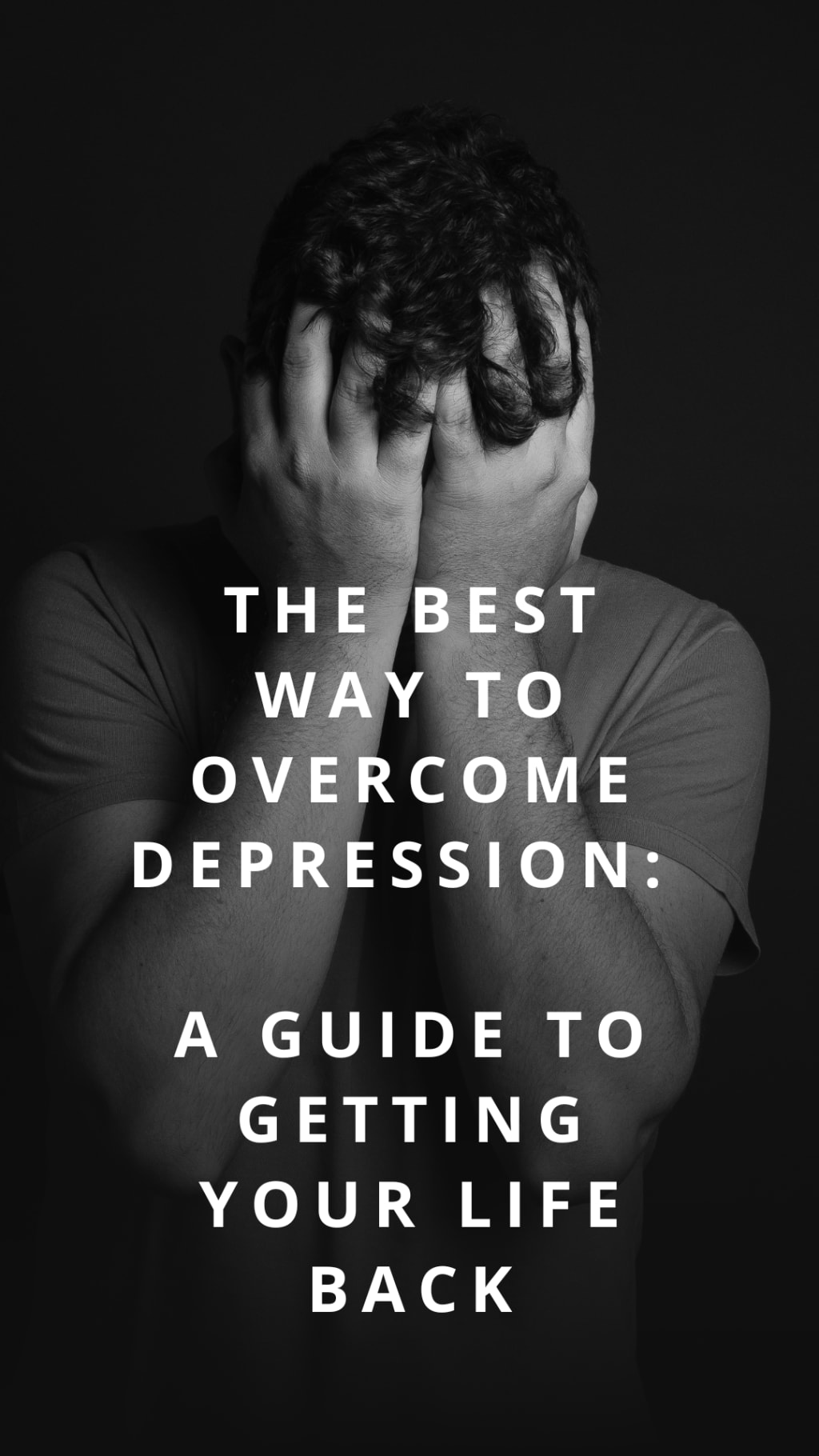The Best Way to Overcome Depression
A Guide to Getting Your Life Back

Depression can be debilitating. It is a feeling of hopelessness, worthlessness, and sadness that can be tough to shake off. If left untreated, depression can lead to severe problems, including suicidal tendencies. Fortunately, there are ways to overcome depression. In this article, we'll go through some of the best ways to overcome depression and get your life back on track.
Seek Professional Help
The first step to overcoming depression is to seek professional help. A mental health professional can help you identify the underlying causes of your depression and develop an effective treatment plan. There are several types of professionals you can consult with, including therapists, psychologists, psychiatrists, and counselors. They may recommend different types of therapy, including cognitive-behavioral therapy, psychotherapy, or medication.
Exercise Regularly
Exercise is a great way to overcome depression. Regular physical activity can help reduce depression symptoms by promoting the release of endorphins, the body's natural feel-good chemicals. Exercise can also help boost self-esteem, increase energy levels, and improve sleep quality. You don't have to start with a rigorous exercise routine. Even a moderate amount of activity can help. Start by taking a 30-minute walk every day or signing up for a yoga class.
Maintain a Healthy Diet
A healthy and balanced diet can help aid in overcoming depression. Foods rich in omega-3 fatty acids, such as salmon, mackerel, and walnuts have been proven to decrease symptoms of depression. Additionally, foods rich in vitamins B12 and D, such as eggs, milk, and mushrooms, have been shown to improve overall mood and increase energy levels.
Establish a Routine
Depression can make it challenging to maintain a consistent daily routine, but establishing one can help you overcome the condition. A routine can help you feel more in control of your life and provide a sense of order and stability. Try to establish a regular sleep schedule, set aside time for meals, and plan your day ahead.
Practice Self-Care
Taking care of yourself is crucial when trying to overcome depression. This includes engaging in activities that make you feel good about yourself, such as reading a book, taking a bath, or practicing yoga. Practicing self-care can help you feel more relaxed and less stressed, and can provide a sense of accomplishment.
Seek Support
Having a support system can make a big difference in overcoming depression. Talking to a trusted friend or family member about your struggles can help you feel less isolated and more understood. Additionally, joining a support group can help you connect with others who are going through similar experiences. Online communities can also be a great resource for finding support and connecting with others. Remember, there is no shame in asking for help, and seeking support can be a crucial step in overcoming depression.
Consider Mindfulness-Based Therapies
Research shows that mindfulness-based therapies, such as mindfulness-based cognitive therapy (MBCT) and mindfulness-based stress reduction (MBSR), can be effective in treating depression. These therapies focus on developing mindfulness skills, which can help individuals become more aware of their thoughts and emotions and learn to respond to them in a more positive way.
One study published in the Journal of Affective Disorders found that MBCT was significantly more effective than traditional cognitive-behavioral therapy in reducing symptoms of depression. Another study published in the Journal of Consulting and Clinical Psychology found that MBSR was effective in reducing symptoms of depression and anxiety in individuals with chronic medical conditions.
While more research is needed to fully understand the effectiveness of mindfulness-based therapies in treating depression, these findings suggest that they can be a valuable addition to a comprehensive treatment plan. If you're interested in trying mindfulness-based therapy, talk to your healthcare provider or mental health professional.
(References: Kuyken, W., et al. (2016). Efficacy of mindfulness-based cognitive therapy in prevention of depressive relapse: An individual patient data meta-analysis from randomized trials. Journal of Consulting and Clinical Psychology, 84(3), 246-258. doi: 10.1037/ccp0000086; Vettese, L. C., Toneatto, T., & Stea, J. N. (2009). Do mindfulness meditation participants do their homework? And does it make a difference? A review of the empirical evidence. Journal of Cognitive Psychotherapy, 23(3), 198-225. doi: 10.1891/0889-8391.23.3.198)
In conclusion, overcoming depression is a long and challenging journey, but it is possible. Seeking professional help, exercising regularly, maintaining a healthy diet, establishing a routine, practicing self-care, and seeking support are all effective ways to overcome depression. While it may take time to see results, with patience, persistence, and a positive attitude, you can get your life back on track. Remember, you are not alone, and there is always hope. If you or someone you know is struggling with depression, reach out for help, and take the first step towards a happier and healthier life.





Comments
There are no comments for this story
Be the first to respond and start the conversation.